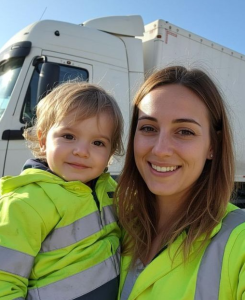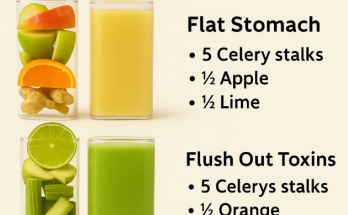I Take My Toddler on Long Hauls—But Last Week He Said Something That Stopped Me Cold
For the past two years, I’ve traveled the country as a regional logistics coordinator. It’s not the most glamorous job, but it keeps food on the table. When childcare fell through for good last year, I started bringing my toddler son, Milo, on my work trips. At first, it felt chaotic—snacks flying, tantrums mid-highway, spilled juice on contracts—but over time, we found a rhythm. He was my tiny co-pilot, tucked into his car seat behind me, babbling about clouds and trucks and dinosaurs.
We’ve seen 17 states together. He’s learned to point out water towers and recognize Waffle House signs from half a mile away. At every rest stop, he insists on holding my hand like we’re on some kind of sacred pilgrimage. In many ways, our cross-country routine became a strange kind of bonding. But last week, something shifted.
Something he said—five words, simple and unexpected—stopped me cold.
A Normal Trip… Until It Wasn’t
It was our usual Thursday run: Austin, Texas to Fort Smith, Arkansas. Six hours one way. We left at sunrise. Milo was munching on his banana slices, kicking his feet to the beat of a lullaby playlist, and giggling whenever a semi-truck honked at him through the window.
At mile 214, just outside a gas station in Broken Bow, Oklahoma, we pulled over. He wanted to stretch, and I needed caffeine badly. While I buckled him back into his seat after our break, he looked at me quietly for a second.
“Mommy,” he said, in that soft toddler voice that still can’t quite pronounce his R’s.
“Yes, buddy?” I said, zipping up his hoodie.
Then he said it:
“Can I go home now?”
A Question That Hit Harder Than Expected
At first, I smiled. I thought maybe he was just tired, or confused about which stop we were at. But something in his eyes felt different. He looked disappointed. Drained. His tiny fingers curled around his juice box with a sort of restless familiarity.
I climbed into the front seat and paused before turning the ignition. “What do you mean, honey? We’re going to deliver the boxes, remember? Then we’ll stay in a hotel with the funny curtains.”
“No,” he said. “I wanna go my real home. My toys. My house.”
It hit me like a brick.
He didn’t mean the hotel. He didn’t mean any of the temporary “homes” I kept setting up—rooms with cartoon sheets, travel potties, fast food chicken nuggets eaten on the edge of a bed. He meant home. Our real one. The one we barely spend time in anymore.
Realization on the Road
I turned off the ignition and sat there in silence, hands on the steering wheel, suddenly aware of just how many miles we’d traveled—and how little we’d stood still.
I looked back at him in the mirror. He wasn’t crying. He wasn’t angry. He was just… honest.
It dawned on me: in my efforts to make life “work,” I’d created a lifestyle that worked for me—but maybe not for him.
He was three. His understanding of the world was simple: home is where you build things with blocks, not where you unpack them. It’s where the same stuffed animal waits for you every night. It’s where your shoes stay by the door, not in a suitcase.
And I realized, suddenly, heartbreakingly, that for the past year, he hadn’t really had that kind of home.
The Things We Think They Don’t Notice
People often say kids are resilient—and it’s true—but they’re also incredibly observant. We think if we keep them entertained with screens and snacks, they won’t notice the bigger things. But they do. They may not understand why we live the way we do, but they feel it. They carry the weight of our choices quietly.
Milo had been adjusting. He was cheerful and easygoing. He didn’t throw tantrums about the travel. But I mistook his silence for contentment. In reality, he had simply adapted because he didn’t know there could be another way.
His quiet plea—“Can I go home now?”—wasn’t about that day. It was a child asking, gently, “Can I have something steady in my life?”
A Change of Plans
I didn’t finish the trip.
I called my supervisor and told him I had to cancel the delivery. I took a hit professionally. I knew it might cost me future assignments. But I didn’t care.
I turned the car around and drove straight back to Austin. Milo fell asleep halfway home, fingers tangled in his favorite blankie, a content sigh escaping his lips as if he knew we were going where he needed to be.
When we got back to our apartment, he ran inside like he hadn’t seen it in months—which, honestly, he hadn’t. He immediately grabbed his favorite dinosaur, climbed onto the couch, and asked if we could watch his cartoon with the “purple fish.”
We sat there together for an hour. I didn’t check my email. I didn’t answer work calls. I didn’t think about the money we just lost. I just watched him watch that silly fish. And I realized: this was the real work. This was the foundation. Everything else could come later.
What I Learned From a Toddler’s Honesty
Milo’s five words changed everything.
I’m not quitting my job—but I’m reworking my schedule. I’m saying no more. I’m prioritizing local routes, even if the pay is smaller. I’m looking into childcare options again, even if it means tightening our budget. Because he needs consistency. He needs a life he doesn’t have to pack into a duffel bag every week.
And so do I.
We often think we’re shielding our kids from stress by keeping them close and managing it all ourselves. But sometimes the most loving thing we can do is listen—not to the tantrums or the screaming, but to the quiet, honest moments when they tell us what they need.
Milo didn’t scream. He didn’t protest. He just asked a question.

